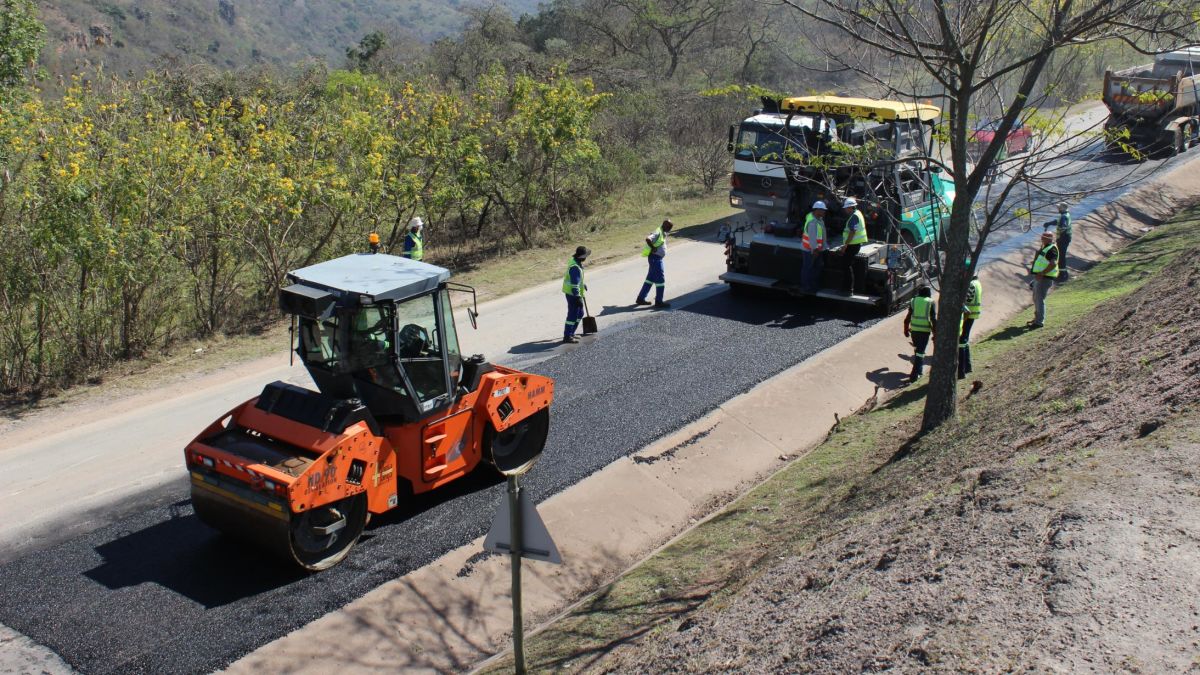South Africa has built its first plastic road using recycled plastic milk bottles – the first in Africa.
The plastics which are made from a non-food-grade recycled plastic is believed to strengthen the road while reducing waste headed for landfill.
According to the South African Road Federation, potholes cost the country’s road users an estimated $3.4 billion per year in vehicle repairs and injuries.
In August, Shisalanga Construction became the first company in South Africa to lay a section of road that’s partly plastic, in KwaZulu-Natal (KZN) province on the east coast.
Shisalanga’s Manager, Donavan Deane Koekemoer, said the company combined two of the country’s biggest challenges – an abundance of plastic waste and damaged roads to produce the maiden recycled plastic paved road in Africa.

“There is a pressing need to recycle plastic waste in our country to minimise waste going to landfill sites and reduce other environmental threats,” he said.
That project is believed to have been the first part-plastic road paved in Africa. Using asphalt made with the equivalent of almost 40,000 recycled two-liter plastic milk bottles, it has now repaved more than 400 meters of the road in Cliffdale, on the outskirts of Durban.
And now 200 tons of ‘plastic road’
The company uses high-density polyethene (HDPE), a thick plastic typically used for milk bottles. A local recycling plant turns it into pellets, which are heated to 190 degrees Celsius until they dissolve and are mixed with additives. They replace six per cent of the asphalt’s bitumen binder, so every ton of asphalt contains roughly 118 to 128 bottles.

“Fewer toxic emissions are produced than during traditional processes and says its compound is more durable and water resistant than conventional asphalt, withstanding temperatures as high as 70 degrees Celsius (158F) and as low as 22 below zero (-7.6F),” Shisalanga noted.
Apart from turning bottles into roads which

Shisalanga said: “The results are spectacular. The performance is phenomenal.”
General manager Deane Koekemoer stressed, “We’re taking plastic out of our dumps and we’re reducing our pollution problem, and to top it off we’ve produced a product that’s far superior to alternatives.”
“We’re leading the global curves.”
In South Africa, 70 per cent recyclable plastic is collected directly from landfill and Shisalanga is turning those waste into roads with the plan to expand the use of this product throughout the country. Seventeen years ago, India began laying plastic roads and the concept has been replicated in locations across Europe, North America and Australia.










